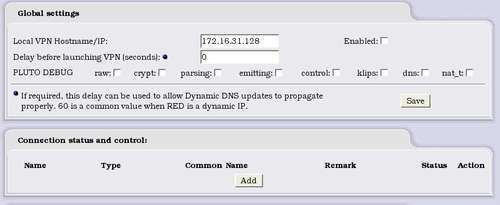This gives you the ability to join to more networks across the Internet with a (virtually) private link. This is one of the main features of IPCop, which means it can also be used in a medium-sized business and not just a SOHO network. The ins and outs of the IPCop VPN implementation are thoroughly discussed in a later chapter.

IPCop has been built to use ProPolice, which is a mechanism used to protect the services running on the firewall from being attacked via the Internet. The stack protection provided by ProPolice is a fairly effective mechanism to prevent a particular kind of vulnerability common in network services.



